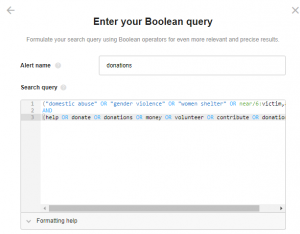And now, at last, the Social Media Insider will stop discussing retargeting and social data and finally offer some comic relief. Good thing that I’m not writing about the executive musical chairs at Twitter, or Facebook’s expanded targeting capabilities, right?
You see, it’s a Friday in summer (well, close enough), so I’m devoting this column to something fun and simultaneously super-important, called ClickHole. What is ClickHole, you ask? According to its list of FAQs, it “is the latest and greatest online social experience filled with the most clickable, irresistibly shareable content anywhere on the internet.”
Of course, with that level of self-belief, it has a lofty mission, stated as such: “Let’s be honest: Today, the average website carelessly churns out hundreds of pieces of pandering, misleading content, most of which tragically fall short of going viral.
At ClickHole, we refuse to stand for this. We strive to make sure that all of our content panders to and misleads our readers just enough to make it go viral … ClickHole has one and only one core belief: All web content deserves to go viral.”
OK, OK. (I hope) you get it now. ClickHole is a parody, published by The Onion, that makes fun of Buzzfeed in particular, but its kin like Upworthy too, as well as native advertising in general. The best part is that all these targets deserve to be parodied. ClickHole is a must-see for anyone in the brand-as-publisher business, because the first step to enlightenment is to fully realize that, too often, people are laughing not with you, but at you.
ClickHole readers will encounter headlines such as the following:
- “It’s Time to Publicly Execute Ronald McDonald”
- “10 Hilarious Chairs That Think They’re People”
- “7 Pricks Who Defied the Odds And Didn’t Go to Finance”
But there are also headlines that hew so closely to the current state of content-attempting-to-go-viral (CATGV) that they don’t appear to be parodies, until you click on them. The quiz on “How Many of These ‘Friends’ Episodes Have You Seen?” reveals episode “titles” such as “The One Where Joey Eats an Apple and Everyone Has a Lot of Opinions On It” and “The One Where Ross Has to Choose Whether Rachel or Monica Dies.”
And then there’s the section called “CashHole” where all of the sponsored content lives. This is where things get meta, because the content, rather than being “sponsored,” really is sponsored, by Jack Link’s Beef Jerky. One CashHole story, called, “9 Little-Known Holidays You’ll Never Want To Miss Again,” spins off the fact that today is, indeed, National Jerky Day, while advising readers to never again miss “Cup of Coffee Flying Toward Your Face Awareness Day.”
Another piece of sponsored content, “6 Heads You Never Realized Are Also On Mount Rushmore,” starts with a plug for Jack Link’s “Meat Rushmore” – a jerky rendition of the real thing, currently on display in Columbus Circle — while also claiming that James Lipton’s head is up there with George Washington and Abe Lincoln on the real Mount Rushmore. It’s all a tour de force of … something. Parody? Sponsored content? Revenue generation for The Onion, Inc.?
If forced to pick one, I’d choose sponsored content, because while firmly being native in every way — the tone, the headlines, the Onion-esque dopiness — it works because in this context it doesn’t matter that it’s sponsored content. That, in turn, means that it’s allowed to be absurdly promotional, just like advertising! It’s a parody-dox!
There are a lot of jokes to be in on here — from the actual content to the overall “mission” of the site — and Jack Link’s is in on all of them. The only problem is that this kind of sponsored content isn’t scalable, even if reams of similar parody sites came out of the Clickhole experience.
You see, I’m not talking about scale as we usually think about it, but the limited ability of too many creators of sponsored content to realize that their attempts at being like editorial are, well, laughable. ClickHole, and its CashHole spinoff, is trying to tell the online advertising and media community something — and it’s not very funny.
MediaPost | Social Media Insider
(340)







